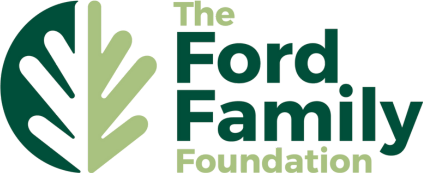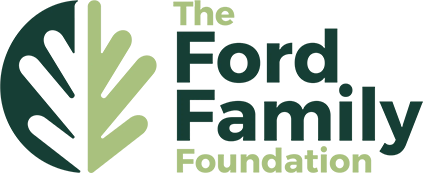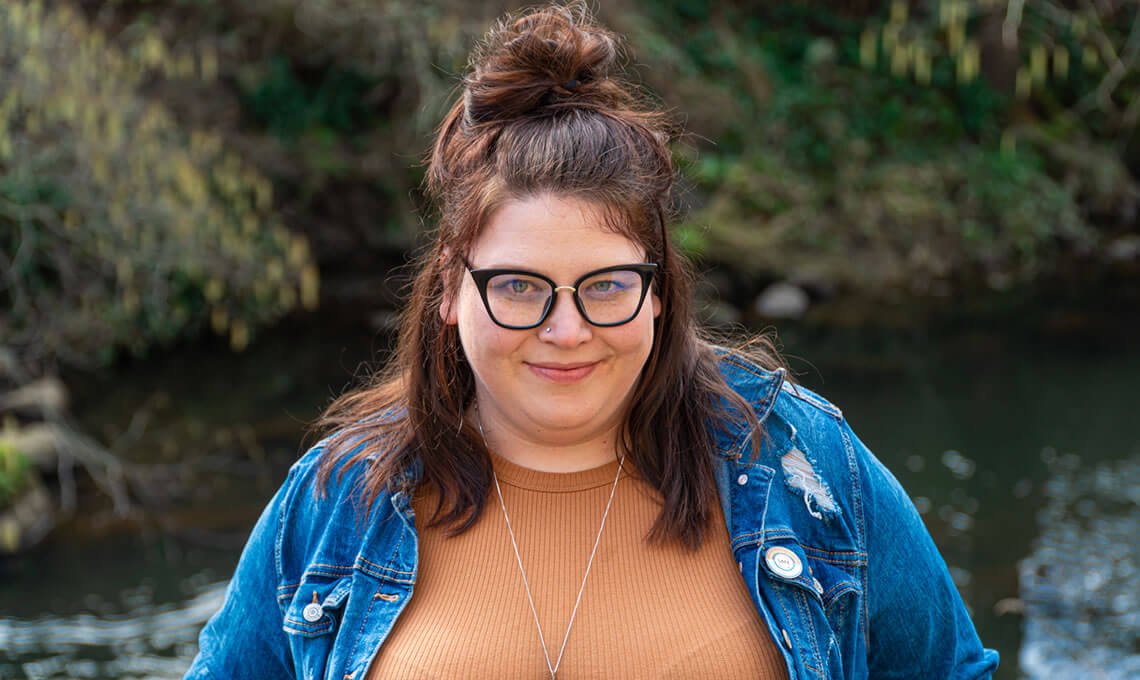Building community for children and youth
Life can be challenging for children who live with chronic health conditions. When they also experience adverse family or community circumstances — poverty, foster care, substance abuse or the death of a parent — their chances of thriving decline dramatically. Child advocates and researchers have given this combination of medical and social challenges a name: health complexity.
In Douglas County, 4,262 children and youth — 28% of the under-21 population — experience health complexity, according to data analysis by Oregon Pediatric Improvement Partnership.
Yet many organizations serving medical, mental and behavioral health needs in rural areas of Oregon like Douglas County do not have the resources they need to adequately provide care for these children. The lack of affordable, accessible options for care means children and youth are in precarious circumstances.
“We know from research that early adversity impacts a child’s healthy development and well-being,” explains Robin Hill-Dunbar, senior program officer for The Ford Family Foundation. “And supporting our children and youth in rural communities takes relationships and a coordinated effort across many types of agencies. So that’s where we started.”
Building community to support children and youth in Douglas County
The Douglas County System of Care advisory committee began collaborating with The Ford Family Foundation in 2018 on an initiative that would bring together youth-serving professionals from across the county. SOCs are coordinated networks across Oregon that support children and youth who are facing challenges, with the goal of helping them succeed at home, school and in life.
Organizers decided on a breakfast. The comfortable ambiance of a food-centered networking event, they reasoned, would be conducive to developing the critical relationships between organizations that lead to better care for the families they serve. Better communication increases knowledge of available services, avoids duplication and establishes direct pathways to interagency cooperation.
“A lot of times we feel isolated in our silos, not considering that other people are doing the same work from another angle,” says Tracy Livingston, who worked with Hill-Dunbar to create the SOC Behavioral Health Breakfast initiative.
“At the breakfast gatherings, you can just reach out and some of the burden is shared.”
Community: Doing something together
Organizers carefully crafted the event for maximum effect and, although the pandemic has moved the event to the Zoom platform, the general format remains the same.
People can sign into the session half an hour early for unstructured networking, and then each gathering begins with a positive reflection on collaboration. The January event, for example, highlighted this quote: “Community is much more than belonging to something; it is about doing something together that makes belonging matter.”
Two organizations are invited to make a 20-minute presentation showing attendees what they do, who they serve and anything else fellow service providers might want to know. Presentations cover a wide variety of topics and services, including parenting classes, mental health supports, foster parenting, child welfare and trauma-informed services.

Speakers for the monthly gathering are booked through 2022 as agencies hope to form closer connections with colleagues in Douglas County.
As the breakfast matured and grew, the gatherings have been led by System of Care community partners, and they are now facilitated by an advisory committee member who works for Douglas Education Service District. The event draws 45-65 people every third Thursday at 7:30 a.m. Organizations are keen to present their work so that they can find partnerships, and the schedule is already booked through the end of 2022.
Participants are eager to return to face-to-face meetings — and actual breakfasts — but the online platform has had its advantages, allowing professionals outside the Roseburg area to join in the collaboration.
The impact
Relationship-building is indisputably the biggest benefit of the gathering, as it opens the door for collaboration, filling gaps and serving more children better. “For me, being able to share space, even virtually, with all these other providers on a similar mission, with similar passion and drive — it reminds me that we are in this together,” says event facilitator Amy-Rose Wootton, who serves as the behavioral health coordinator for Douglas ESD. “I feel the strength of a community at my back as I move forward through my month until the next meeting.”
“I feel the strength of a community at my back as I move forward through my month until the next meeting.” — Amy-Rose Wootton
The effects are resonating throughout the community.
“I am constantly learning of new or already existing services that I can refer youth and families to,” Wootton says. “It feels like no matter how long I have been working in this community there is always a hidden gem of a program that gets brought to light through our monthly gatherings.”
Robert Miller, executive director of Roseburg’s Family Faith and Relationship Advocates, credits relationships he formed through the gatherings for helping grow his 3-year-old organization. “And now, mainly through these connections, we are getting ready to open a youth shelter in the middle of next year,” says Miller, who estimates that there are about 70 youths in Douglas County that are considered unhoused. “I’ve got this great mentorship group that helps us problem solve and make sure kids get access to the shelter,” he says. “And every single one of them comes to the monthly breakfast gathering.”
Lee Ann Grogan, coalition coordinator for Creating Community Resilience, connected with a community leader at the breakfasts who now works on her team of trainers, offering trauma-informed leadership. “The breakfasts have helped connect me more broadly to different parts of the community,” she says. “Social service entities tend to play well together but getting to know other community groups, faith-based leaders and volunteers is really a nice benefit.”
This is especially important in communities like Roseburg, where faith-based centers, service providers and loose networks of volunteers may serve the same individual children and their families. Greater communication and understanding results in less duplication of services and more direct channels for multi-agency cooperation.
Whatever the individual benefit, the ultimate beneficiaries of the collaboration fostered by the gatherings are the children served by participating organizations.
And with the wind at her back, Wootton, along with dozens of other dedicated social service professionals, take steps forward to improve the lives and conditions of children and youth in Douglas County.
Douglas County residents and local or statewide service providers who wish to receive an invitation to the SOC breakfast should email Amy-Rose Wootton at amy.wootton@douglasesd.k12.or.us.


